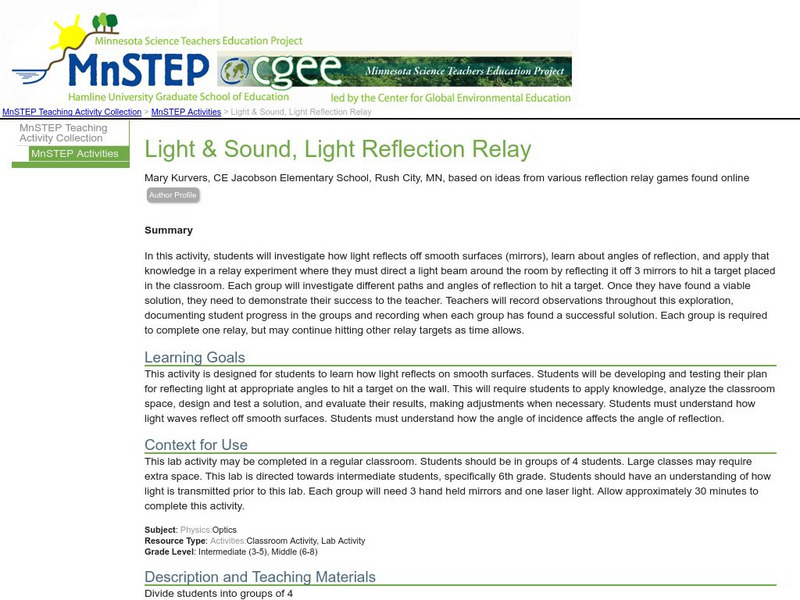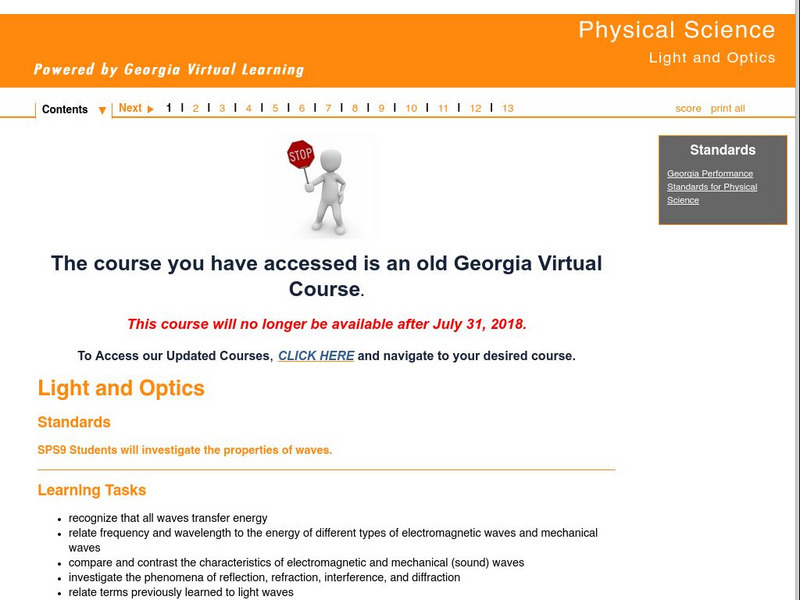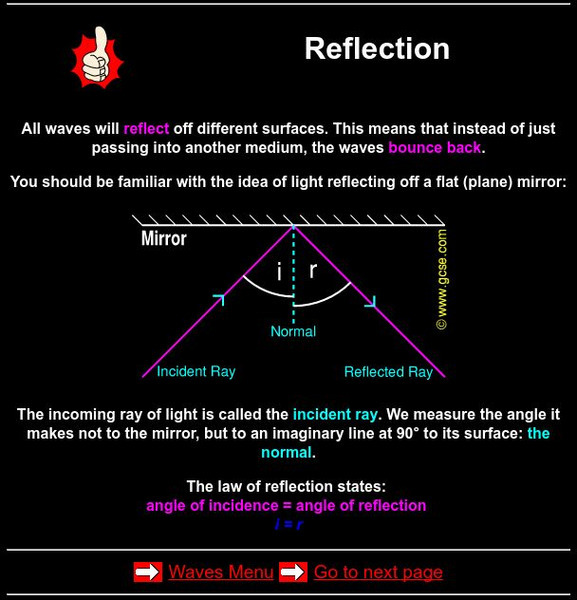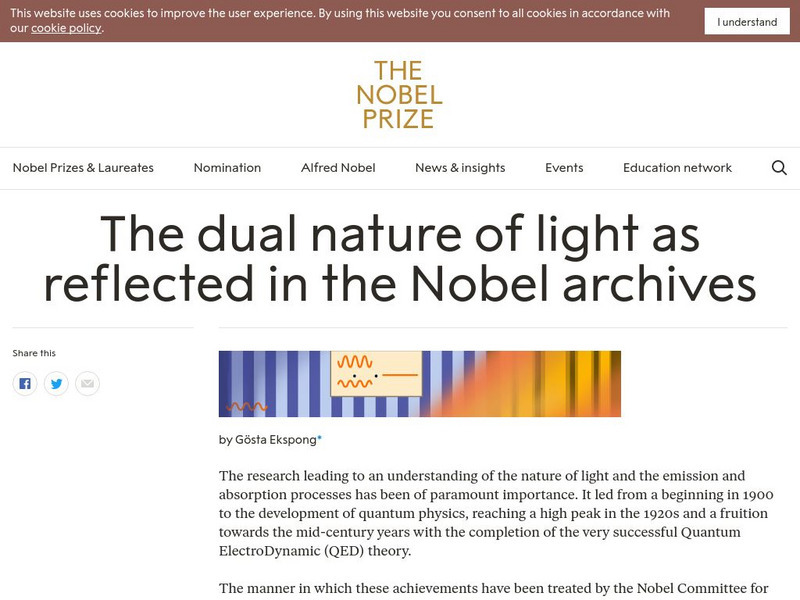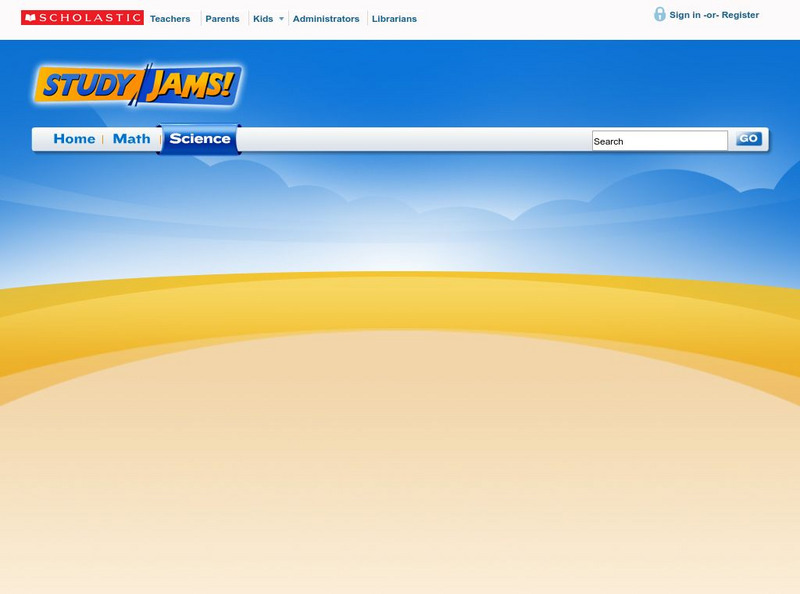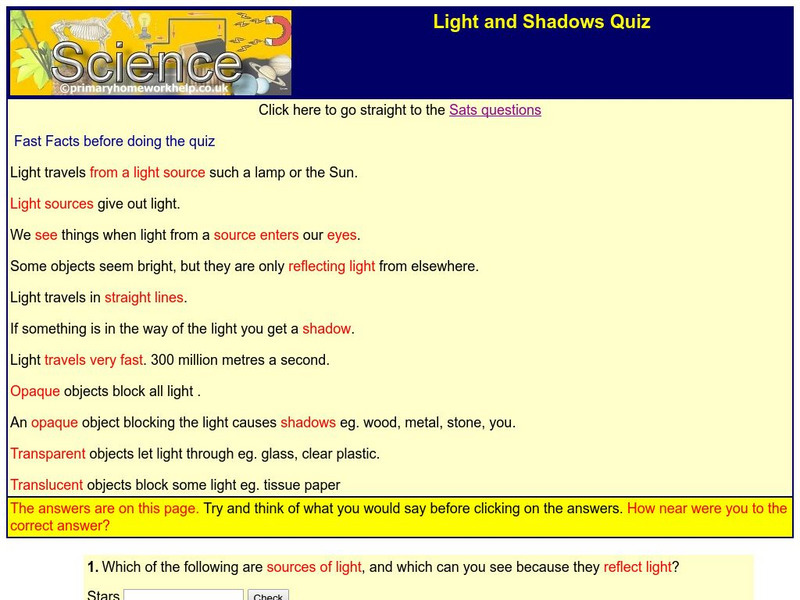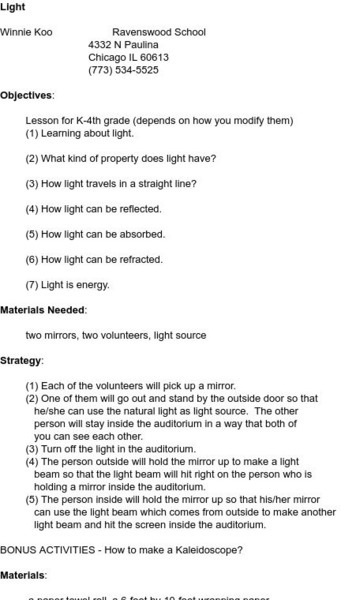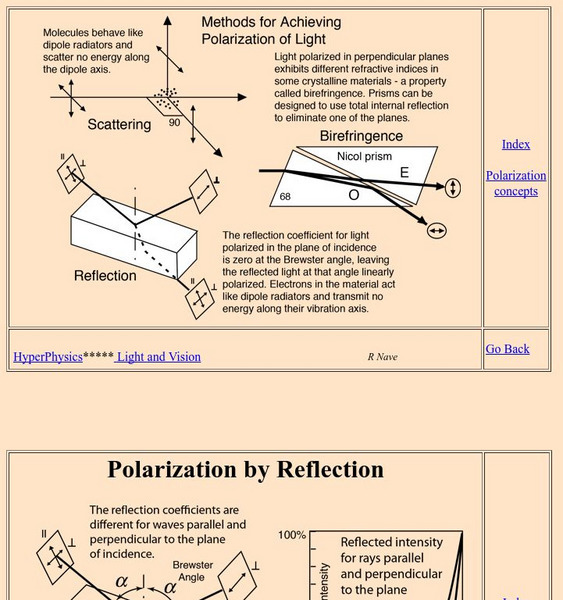BBC
Bbc: Gcse Bitesize: Why Do Scientists Think That Light and Sound Are Waves?
Light travels as transverse waves and can travel through a vacuum. Sound travels as longitudinal waves and needs to travel through a solid, liquid or gas. Read about the properties of light and of sound, and learn the differences between...
Science Education Resource Center at Carleton College
Serc: Light & Sound, Light Reflection Relay
In this exploration, students will investigate how light reflects off smooth surfaces, learn about angles of reflection, and apply that knowledge in a relay experiment.
Georgia Department of Education
Ga Virtual Learning: Physical Science: Light and Optics
Students will investigate the properties of light waves. They will learn about the different types of electromagnetic waves and mechanical waves, and investigate the phenomena of reflection, refraction, interference, and diffraction.
Other
Gcse.com: Physics: Reflection
Informational site provides illustrated tutorial of light reflection. Also discusses the law of reflection.
Nobel Media AB
The Nobel Prize: The Dual Nature of Light as Reflected in the Nobel Archives
This article discusses the historical figures who contributed to our understanding of the nature of light, x-rays, Quantum ElectroDynamic (QED) theory, and so on.
Exploratorium
Exploratorium: Critical Angle
Students can see light reflected and refracted in this demonstration. They will also discover the total internal reflection of light.
Exploratorium
Exploratorium: Soap Bubbles: Create Geometric Art With Soap Films
In this lesson plan students will learn about reflection of light using soap bubbles.
Open Curriculum
Open Curriculum: Bounded Waves
To understand how bounded waves behave and how reflection of waves affects the wave components.
CK-12 Foundation
Ck 12: Physical Science: Law of Reflection
[Free Registration/Login may be required to access all resource tools.] Reflection and how it produces an image, regular and diffuse reflection and the law of reflection.
Scholastic
Scholastic: Study Jams! Science: Energy, Light and Sound: Light
A video and a short quiz on the basic concepts and vocabulary for understanding light energy.
Project Britain
Primary Homework Help: Light and Shadows Quiz
This resource provides information about light and shadows. In addition, there is a short quiz that can be taken.
Other
Propagation of Light Using Geometry
A discussion of Christian Huygens' contribution to wave optics, and particularly to our understanding of the reflection and refraction of light. Excellent diagrams and a geometric proof on why the law of reflection is mathematically...
BBC
Bbc: Gcse Bitesize: General Properties of Waves
Light travels as waves. Waves can be described by their amplitude, wavelength and frequency. The speed of a wave can be calculated from its frequency and wavelength.
TeachEngineering
Teach Engineering: Learning Light's Properties
Students learn the basic properties of light--the concepts of light absorption, transmission, reflection and refraction, as well as the behavior of light during interference. Lecture information briefly addresses the electromagnetic...
TeachEngineering
Teach Engineering: The Energy of Light
In this introduction to light energy, students learn about reflection and refraction as they learn that light travels in wave form. Through hands-on activities, they see how prisms, magnifying glasses and polarized lenses work. They also...
Science Education Resource Center at Carleton College
Serc: Investigating Light: A Form of Energy You Can See
Students will investigate how light is a form of energy that travels as waves away from the source. The basis for this instructional activity is taken from the Houghton Mifflin science curriculum. In the instructional activity...
Other
Open School Bc: Sound and Light
The Sound and Light interactive investigates these two forms of energy. Students will enjoy exploring how sound and light are created, travel, and can be controlled.
Discovery Education
Discovery Education: Science of Everyday Life: Light and Shadow [Pdf]
For this lesson plan, students experience how light interacts with the environment by investigating relationships between shadows and light. Students will experiment with light by observing how light travels through materials and distances.
E-learning for Kids
E Learning for Kids: Science: North Sea: Why Do We Need Light?
Frederik is doing experiments about light to find out how it helps people to see things.
University of Minnesota
University of Minnesota: How Does Light Travel?
Contains a four step procedure to deriving the law of reflection using algebra, Fermat's principle, and calculus (simple derivatives). This is good for an in-class theoretical exercise.
Science and Mathematics Initiative for Learning Enhancement (SMILE)
Smile: Light (K 4)
This site provides two activities that young scholars can do in class. One uses mirrors to reflect light beams whole another is making a kaleidescope.
BBC
Bbc: Bitesize: Gcse: Physics: Reflection and Refraction
All waves will reflect and refract in the right circumstances. The reflection and refraction of light explain how people see images, color and even optical illusions. This tutorial discusses each concept and presents an experiment to try...
Georgia State University
Georgia State University: Hyper Physics: Methods of Polarization
At this college physics department site, the polarization of light is explained and illustrated as well as the primary methods of polarization (scattering, reflection, and refraction).
Georgia State University
Georgia State University: Hyper Physics: Crossed Polarizers
At this univeristy physics department site, the polarization of light is explained and illustrated. Methods for analyzing light to determine the degree of polarization are stated and explained with equations.



